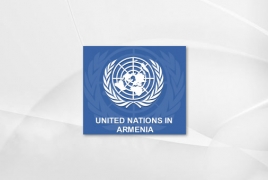
A deal has been struck on using satellites to track planes, motivated by the disappearance of Malaysia Airlines flight MH370 last year, BBC News reports.
The decision to dedicate part of the radio spectrum to a global flight tracking system was taken at a UN conference in Geneva on Wednesday, November 11.
The conference aimed to improve on the current tracking system which relies on ground-based radars.
Representatives from more than 160 countries decided to set aside a radio frequency for the satellite tracking of planes at the World Radiocommunication Conference (WRC), organized by the UN's International Telecommunication Union (ITU).
The deal will enable satellites to receive transmissions, known as automatic dependent surveillance-broadcast (ADS-B) that aircraft currently only send to other aircraft and to ground stations.
This will allow "real-time tracking of aircraft anywhere in the world," said Francois Rancy, head of the ITU's Radiocommunication Bureau.
The current system leaves around 70% of the world's airspace uncovered.
The Malaysia Airlines flight was en route from Kuala Lumpur to Beijing when air traffic control staff lost contact with it. The plane is long believed to have crashed into the southern Indian Ocean.
In July part of an aircraft wing was found on Reunion Island. Malaysian authorities later confirmed the debris to be from the missing MH370 plane.
The UN's aviation arm, the International Civil Aviation Organization (ICAO), has set a November 2016 deadline for adopting new tracking guidelines.
These will include aircraft sending their position at least every 15 minutes, or more in case of emergency.

